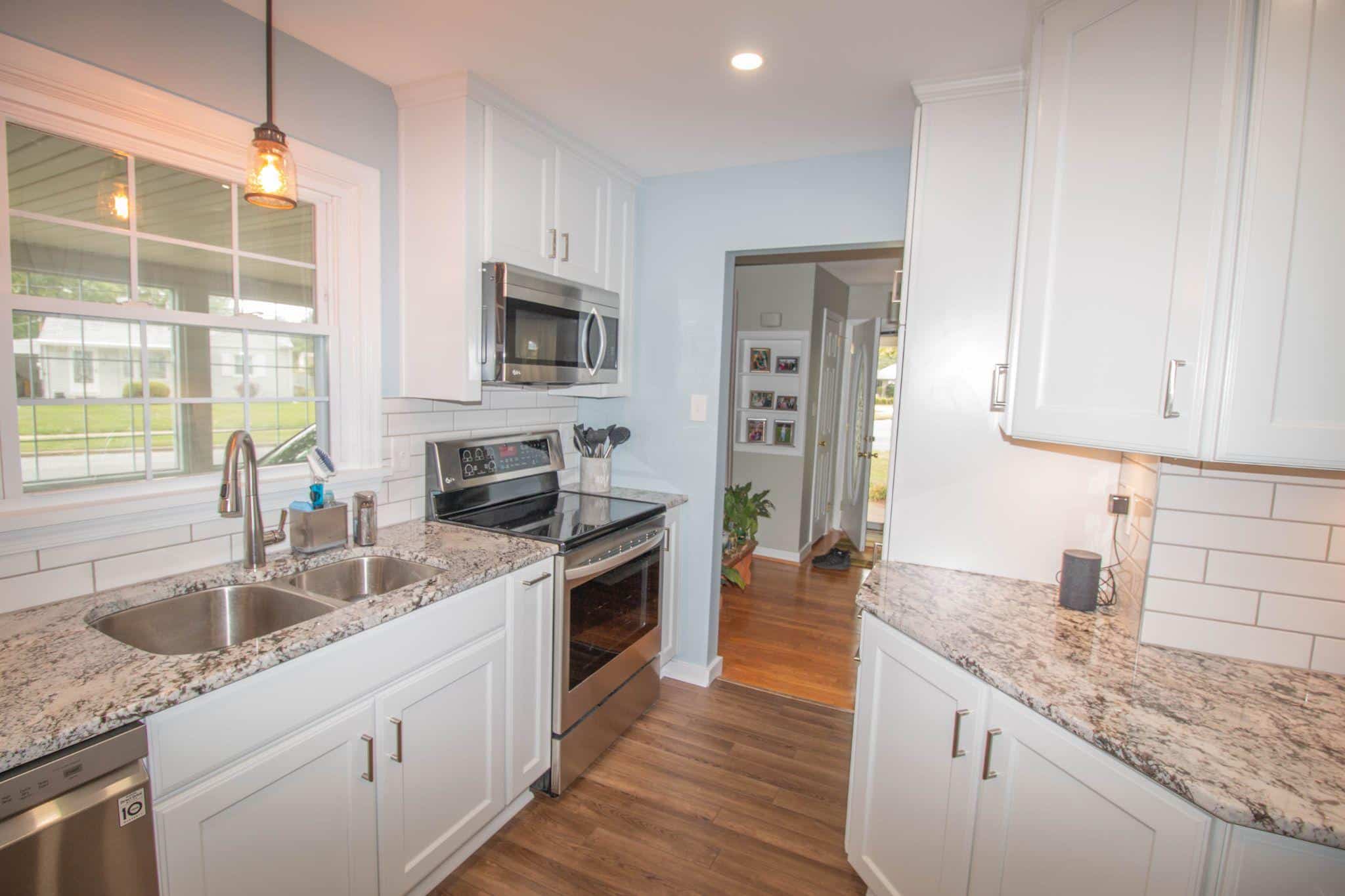It’s happened to us all: you’re in the middle of reading or scrolling through your smartphone or perhaps trying to read the menu in the dimly lit dining establishment, when suddenly things begin looking blurry.
Then you squint, alter the brightness, but there’s no solution. It’s as if you’re trying to view your favourite TV show with foggy glasses – super annoying! The question then becomes: Do you wear glasses for reading?
Before you head out to get the first pair you see, take a moment to come up with a solution. If you’re thinking about whether reading glasses can help or even if you’re experiencing some wear and tear on your eyes, a Glasses store will provide necessary advice from an expert. Let’s look at it in detail.
What Are Reading Glasses, Anyway?
Imagine this scenario: imagine you’ve got the most powerful magnifying glasses that you can hold in your hand. It’s basically the purpose of the reading glasses! The primary function of reading glasses is to aid you in seeing things closer, such as the screen, books, or small labels. Reading glasses’ lenses aid in the focus of objects that might appear somewhat blurred, particularly in the later years of your life.
Many people experience this, and as we get older, our eyes are unable to see objects nearby. This is known as presbyopia and is normal. Imagine that your eyes are becoming tired from many years of work, as if a vehicle has had a smooth ride for a while but is in need of a tune-up. If you’re experiencing blurred vision in close proximity, it could be that you require reading glasses to provide your eyes with the energy boost they require.
How Do You Know If You Need Them?
It’s often difficult to know if you need reading glasses. There are a few indicators to look out for, and knowing these signs will help you determine if you’re ready to make a visit to a glasses store.
Eye Strain
When you’re always squinting when reading or looking at small text, it’s a signal that your eyes may require a bit of extra assistance. You may be experiencing eye strain, headaches, or neck pain as you lean in too much. Consider it as if you’re trying to read your favourite novel in a dark room that has poor lighting. You’ll get it through, but it’s not the most enjoyable feeling. Glasses can help fix this!
The Holding of Things Away
You have noticed that you’re keeping your phone or menu, book, or other item further away from you than normal to concentrate better? This is like taking an image using your phone in a way that’s the only method to get all the people in the picture. Arms aren’t long enough to have the “reach” to focus, and this is an indication that your eyes may require a bit of assistance from reading glasses.
Blurred Vision Close-Up
When your eyes seem blurry when trying to read on your laptop, and the blur does not get rid of itself after adjusting the brightness, it’s an excellent idea to go to the Glasses store. Your eyes may not be the sharp as they were in the past. Like your favourite jeans that could use something tidied up, and your eyes may need some quick fixes with reading glasses.
So, Why Visit a Glasses Store?
Yes, you can purchase reading glasses on the internet or pick up a pair from the drugstore. However, going to a glasses store offers a number of benefits which make it worth the drive. Imagine buying a pair of glasses without trying them on – probably not an ideal choice, is it? It’s the same to your eyes.
Expert advice
A trip to a glasses store will provide you with advice from an expert. Opticians can assist you in figuring out if you require reading glasses or if you have a problem with your vision to blur. They’ll also be able to recommend which lenses are best for your specific needs and may even help in selecting a style that is right for you.
An appropriate fit
Similar to purchasing jeans, glasses for reading need to sit properly. If the glasses are too snug or loose, they’ll feel uncomfortable and unproductive. When you visit a spectacle retailer where you’re able to try various pairs until you find the one that’s perfect. Additionally, you can make adjustments to make sure that your glasses sit comfortably against your face and do not slide across your face or rub your temples!
Personalization
The eyes of each person are distinctive, and therefore, why should you settle for the same-size solution? If you go to the frame shop, you will be able to purchase glasses that are custom-made specifically to your needs. If you require a greater magnification for reading or an extra coating that reduces the glare on your eyes, the Glasses Store can assist you in finding the ideal pair.
Different styles
It’s fair to admit that no one would want to put on glasses that do not look fashionable. The good news is that glasses shops provide a variety of frames available in all sorts of styles, colours, and dimensions. No matter if you prefer stylish, classic, or sporty designs, you can find a pair of reading glasses to match the style of your choice.
Prescription Help
If your blurred vision goes beyond the need for reading glasses and you think you may require a prescription, a visit to an eyeglass store can be a good option to seek help. The optician can refer you to an eye specialist to conduct a complete eye examination to ensure your glasses provide the ideal solution to your eyesight.
When to See an Eye Doctor
If you’re experiencing blurred vision that’s more than just the result of needing glasses for reading, then it could be necessary to consult an eye physician. In particular, if you notice abrupt changes in your vision as well as eye pain or light sensitivity, you should seek out assistance from a professional. If all you’re struggling with is normal age-related problems with seeing close up, the local store for glasses can help you start with finding the ideal pair of eyeglasses for you.
As with getting an annual check-up with the doctor, it’s a great practice to get your eyes examined regularly, even if you require glasses. Optometrists are able to detect warning signs of conditions such as cataracts or glaucoma, which can be treated much more easily when they are detected earlier.
The Fun Part: Choosing Your Style
This is where the fun begins! Selecting your reading glasses isn’t just about functionality but also about style. It’s important to choose glasses that will not just improve your sight but also complement the style of your own. Do you prefer a slim, minimalist style, or are you drawn to bold, bright frames? If you visit the glasses store, it is possible to test with different frames, have fun with different styles, and then find one that you are comfortable in.
Consider it as if you were choosing a new dress. It’s not a good idea to settle for an outfit that doesn’t fit your style or make you feel at ease, do you? This is the same for reading glasses. No matter if you’re visiting the glasses store for your first time or are already a pro, you must pick glasses you’ll be happy wearing every day.
Wrapping It Up: Time to Visit the Glasses Store
Do you actually need glasses for reading? If you’re suffering from blurred vision when you’re close up and straining your eyes or trouble with focusing, the answer is yes, reading glasses might provide the answer. One of the most effective ways to locate the ideal pair is to visit a glasses store. You’ll receive professional advice, an ideal size, and the opportunity to look at the various designs.
Similar to finding that perfect pair of sneakers or cozy sweater, selecting the correct pair of reading glasses could have a major impact on your daily routine. Don’t allow blurred vision to affect your mind. Go to the neighbourhood eyeglass retailer and prepare to view the world easily – with style!
Do You Need Reading Glasses? How to Tell and What to Do Next
Struggling to read small print? Holding your phone further away to bring text into focus? These are common signs that you may need reading glasses. For many people, especially over the age of 40, age-related changes in vision make it harder to see things up close. This condition, known as presbyopia, is a natural part of ageing — but that doesn’t mean you have to put up with blurred text or eye strain.
In this guide, we explain what reading glasses are, how to tell if you need them, what to consider before buying a pair online, and how to choose the right lens type and frame.
What Are Reading Glasses?
Reading glasses are designed to help people see clearly at close range. They work by magnifying text or objects that are nearby — typically between 30 and 40cm from your face — and are especially useful for activities like reading, writing, using a mobile phone, sewing, cooking, or working on a laptop.
There are two main types:
- Ready-made (non-prescription) reading glasses: These come in fixed strengths, ranging from +1.00 to +3.50 in 0.25 increments. They are typically used by people who have no other vision issues but need assistance seeing up close. They are affordable and widely available.
- Prescription reading glasses: These are custom-made based on the results of an eye test. They are essential for anyone with astigmatism, significant differences between eyes, or combined near and distance vision needs. Prescription reading glasses offer precise correction tailored to your visual requirements.
Reading glasses are generally considered single vision lenses, focused solely for close work. They can also be incorporated into multifocal lenses, such as bifocals or varifocals, which include additional zones for distance and intermediate viewing.
Common Signs You Might Need Reading Glasses
1. Blurred Vision Up Close
If you’re struggling to read text on your phone, newspaper, or food labels, and adjusting the brightness or lighting doesn’t help, it’s a strong indicator of presbyopia. You might find yourself moving the page further away or needing to increase font sizes frequently.
2. Eye Strain and Fatigue
Extended reading or screen use without correction can cause symptoms like aching eyes, headaches, and difficulty concentrating. If you regularly rub your eyes, feel tension behind them, or suffer from fatigue during close work, your eyes may be compensating for a lack of proper focus.
3. Holding Text Further Away
If you’re subconsciously stretching your arms to read clearly, that’s a classic sign. The phenomenon often starts subtly, but over time, the distance you need to see clearly increases — until it becomes uncomfortable or impractical.
4. Difficulty Reading in Low Light
As we age, the pupils become less responsive to changes in lighting, and the eye’s lens becomes less flexible. This makes it harder to adjust quickly between lighting conditions. Struggling to read menus in dim restaurants or turning on extra lamps at home might be signs you need reading glasses.
5. Squinting to See Clearly
While squinting might sharpen vision temporarily by changing the shape of the eye’s lens and limiting peripheral light, it’s not a sustainable solution. Frequent squinting while reading or using a smartphone often indicates it’s time to consider magnified lenses.
Why You Shouldn’t Rely on Guesswork
While it’s tempting to grab a pair of off-the-shelf reading glasses from a local shop, they aren’t always the best long-term solution. Choosing the wrong strength — especially one that’s too high — can cause further discomfort, including nausea, visual distortion, and increased strain.
Additionally, pre-made readers don’t take into account key measurements such as pupillary distance (PD), which is the space between the centres of your pupils. An incorrect PD can lead to misalignment and a less effective visual experience.
Getting your eyes tested is the most accurate way to ensure you choose the right reading glasses for your specific needs. An eye test will also confirm whether magnification alone is sufficient, or if you require a more tailored prescription.
What to Look for When Buying Reading Glasses Online
If you’re shopping online, here are some key things to consider:
- Lens strength: Start with the lowest magnification that helps you read comfortably. Many retailers provide charts or printable reading tests to help you determine the right power.
- Frame size and fit: Check the frame dimensions — including lens width, bridge width, and arm length — to find the best fit for your face. Lightweight materials like acetate or stainless steel can add comfort for longer wear.
- Return policy: A reputable retailer should offer free or easy returns, allowing you to try the glasses risk-free.
- Lens options: Decide if you need standard clear lenses or would benefit from lens enhancements like blue light filtering, anti-reflective coating (MAR), or scratch resistance.
- Customisation: If you already wear prescription glasses, you can add reading strength to a separate pair, or select varifocal or bifocal lenses that include reading zones. Most online retailers allow you to upload or enter your prescription directly during checkout.
The Role of Blue Light Coating
With many people now reading from screens, adding a blue light filter to your reading lenses has become increasingly popular. Blue light emitted from phones, tablets, and computer screens may contribute to digital eye strain and disrupt your natural sleep cycle.
A blue light coating can help reduce glare and eye fatigue, especially when reading in the evening or under artificial lighting. It’s particularly helpful if your reading routine includes digital devices, as it provides a more comfortable visual experience.
Blue light coatings can be added to both ready-made and prescription reading glasses. While not essential for everyone, it’s a worthwhile option for those who experience tired eyes or screen-related discomfort.
When to Seek Professional Advice
Reading glasses are ideal for addressing near-vision blur caused by presbyopia. However, there are some symptoms that may indicate more serious underlying conditions:
- Sudden vision changes
- Pain, redness, or inflammation in one or both eyes
- Flashes of light, floaters, or double vision
- History of eye conditions such as glaucoma or macular degeneration
- Underlying health conditions like diabetes
If you notice any of these signs, or if it’s been more than two years since your last eye test, it’s best to consult an optician for a full assessment.
Benefits of Using Reading Glasses
- Enhanced comfort: Easier reading with less squinting, fewer headaches, and reduced eye fatigue.
- Improved productivity: Clear near vision allows for greater efficiency in reading, writing, or any close-up task.
- Visual clarity: Objects and text appear sharper and more detailed, improving overall confidence.
- Customisation: Reading glasses can be tailored to your exact prescription and visual habits.
- Stylish options: From minimalist to bold designs, modern reading glasses are available in a wide range of styles and colours.
Final Thoughts
Reading glasses can make everyday tasks easier and more comfortable, from checking your phone to reading books, recipes, and documents. If you’ve noticed blurred vision up close, increased eye strain, or the need to hold reading material further away, it may be time to explore your options.
Shopping online offers convenience, affordability, and access to a wide selection of styles and lens options. Look for retailers that allow you to customise your lenses, add coatings like blue light filters, and enter your exact prescription if needed.
Protecting your vision starts with recognising the signs — and choosing reading glasses that suit your needs, lifestyle, and personal style.








